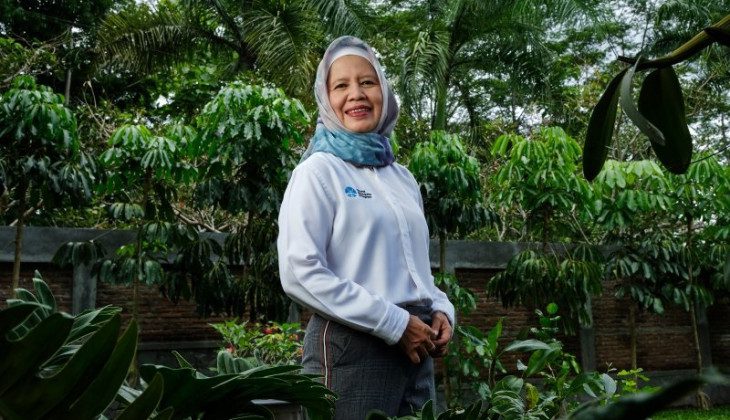Prof Adi Utarini, researcher and Professor of UGM FKKMK, made it to the list of 100 influential people in the world in 2021 according to TIME magazine released on Wednesday (15/9).
Prof Adi Utarini, familiarly called Professor Uut, is a pioneer as she led research on Wolbachia technology for dengue control in Yogyakarta with the World Mosquito Program (WMP) Yogyakarta.
WMP Yogyakarta collaboration (previously known as Elimination Dengue Project – EDP) is a collaboration between UGM FK-KMK, Monash University, and the Tahija Foundation. Wolbachia technology was discovered by the Founder and Director of WMP Global, Prof. Scott O’Neill in 2008.
WMP initiated by Monash University is a non-profit organization that exists to protect the global community from mosquito-borne diseases. WMP operates in 11 countries, including Indonesia.
“This is a blessing from Allah SWT for our research team at the World Mosquito Program Yogyakarta. This is an appreciation for the researchers and the entire team involved in the research, as well as our partners, Monash University, the World Mosquito Global Program, and the Tahija Foundation as a philanthropic institution that fully supports this research. It is also an appreciation for the Yogyakarta communities who have been open to innovation and the Yogyakarta local government for supporting this research. Hopefully, this research will be of wider use to reduce the burden on society due to dengue,” said Prof. Uut.
Dr. Riris Andono Ahmad, Assistant Researcher of WMP Yogyakarta and Director of the Center for Tropical Medicine UGM FKKMK, said that research on the development of Wolbachia technology has started in 2011. The initial phase of research was done to ensure the safety of Wolbachia, followed by a release in areas limited.
Furthermore, Dr. Riris explained that in 2017, the Wolbachia efficacy test using the Randomized Controlled Trial method was carried out in the city of Yogyakarta by dividing the Yogyakarta area into 24 clusters, with 12 receiving Wolbachia intervention and 12 others being the comparison area.
“The results of the Wolbachia efficacy test showed encouraging results. Wolbachia can reduce 77% of dengue cases and 86% of dengue cases treated in hospitals,” said Dr. Riris.
Dr. Warsito Tantowijoyo, Entomology Team Leader of WMP Yogyakarta, highlighted the safety aspects of Wolbachia. Wolbachia is a naturally occurring bacterium found in 60% of insects and only lives inside insects.
“Wolbachia in Aedes aegypti works by inhibiting the development of the dengue virus in the mosquito’s body so that when a mosquito bites a human, there is no transmission of dengue virus,” said Warsito.
Lastly, Dr. Riris explained that in 2021, WMP Yogyakarta in collaboration with the Sleman District Government through the Sleman District Health Office began implementing Wolbachia technology. In 2022, this technology will be implemented in Bantul Regency.
UGM hopes that the Ministry of Health of the Republic of Indonesia can begin to adopt Wolbachia technology as one of the national strategies for controlling dengue. We also hope this research can inspire other researchers in Indonesia to be more active in conducting research that can solve the nation’s and world’s challenges.
Source: https://www.ugm.ac.id/id/berita/21697-peneliti-ugm-masuk-daftar-100-orang-berpengaruh-dunia-2021



